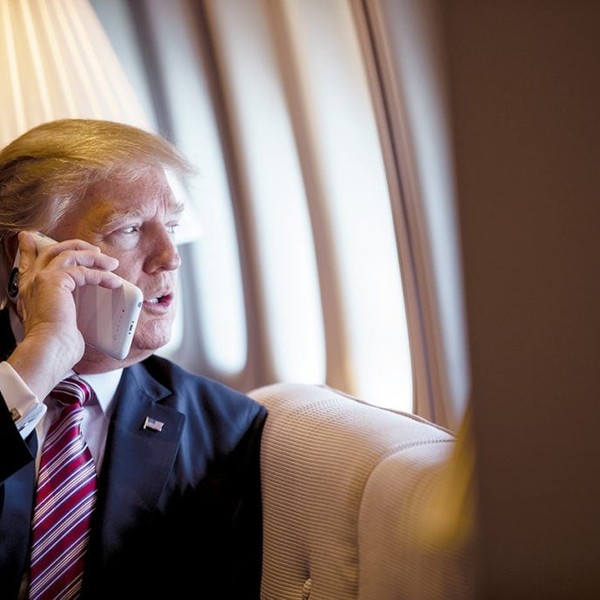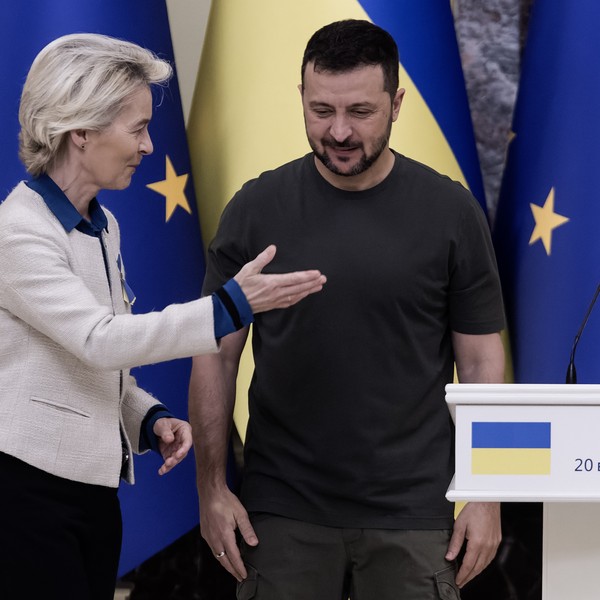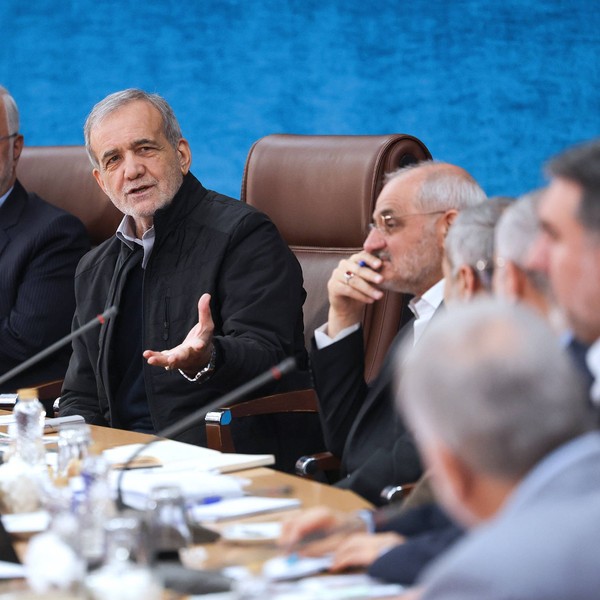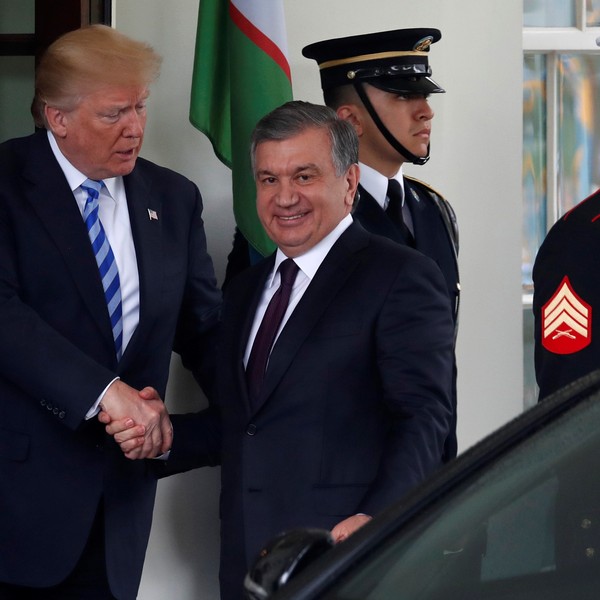Speaking at an event in Israel last week, U.S. ambassador to Israel Tom Nides made news again when he appeared to rule out negotiations with Iran as long as its government continued its crackdown against protesters and persisted in its delivery of military assistance to Russia.
As Washington Institute for Near East Policy senior fellow Henry Rome reported, Nides said, “Make no mistake, we’d like a diplomatic resolution. But as long as the Iranians are doing what they are doing — not only to their people in Iran but then producing drone technology and shipping it to Russia to go against Ukraine — we can’t have negotiations during those periods of time.”
If the ambassador’s comments reflect the administration’s position, and presumably they do, this means that the U.S. has absolutely written off negotiating with Iran for the foreseeable future. By tying negotiations to other issues that have nothing to do with the nuclear program, the U.S. is setting a virtually impossible standard for the resumption of negotiations. There will always be conduct by other states that our government finds unacceptable. If that requires refusing to negotiate on other issues, there is no real chance for making diplomatic progress on anything.
No matter how justified Washington’s objections to the Iranian government’s behavior in other areas may be, it makes no sense to make the nuclear negotiations contingent on that behavior. If the Obama administration had applied the same standard, there would have been no nuclear deal in the first place.
Indeed, one of the chief goals of nuclear deal saboteurs over the last eight years has been to link the nuclear issue to unrelated matters in order to scuttle the agreement. The more issues that are linked together, the easier it is for any one of them to blow up the process. That is why the original nuclear negotiations leading to the Joint Comprehensive Plan of Action (JCPOA) were so narrowly focused on the nuclear issue and nothing else, because the other issues would have become pretexts for walking away from the talks.
There are always hardliners on both sides keen to find reasons to abandon diplomacy, and the position outlined by the ambassador is a gift to hardliners in Iran. If Iranian hardliners don’t want negotiations to continue, all they need to do is lash out in some other way that Washington can use as an excuse for not talking. The odd thing is that the Biden administration spent most of the last two years insisting that there be no “extraneous” issues brought into the talks. They repeatedly rejected Iranian demands that it deemed to be irrelevant to the nuclear issue. Now that the talks are essentially moribund, it seems that the administration is happy to bring up extraneous issues as an excuse to give up on further talks.
Important issues will often have to be compartmentalized from the rest of the relationship if two governments that mistrust each other are going to be able to find a compromise that satisfies both sides. Some interstate relationships are so toxic that making progress on even one issue is a Herculean task. If that one issue isn’t isolated from the rest of the relationship, any reasonable discussions will be overwhelmed by the sheer hostility between the two governments. The breakthrough that the U.S. and Iran had on the nuclear issue between 2013 and 2015 came about in part because both governments chose not to be trapped by decades of animosity and refused to let other major disagreements influence their flexibility on that issue.
We are seeing right now with Russia and arms control what can happen when one of the parties to a treaty, in this case Russia, chooses to tie the fortunes of a successful agreement to a separate agenda. The survival of New START is very important for both the U.S. and Russia, but Russia is evidently prepared to risk its collapse to try to get its way on other issues. The U.S. is playing a similar dangerous game with the fate of the JCPOA by appearing to link negotiations to other matters.
Nides’ comments on negotiations came just moments after he once again reassured the audience in Israel that the U.S. would not “tie Israel’s hands” with regard to Iran and would have “Israel’s back.” The ambassador reiterated practically unconditional backing for whatever action the Israeli government chooses to do, and then in the next breath pronounced negotiations with Iran dead and set unrealistic conditions for their revival.
It was worrying enough when the U.S. appeared to be giving a green light for possible Israeli military action when the ambassador made similar remarks last month. As the Quincy Institute’s Trita Parsi wrote at the time, “Yet, this appears to be the direction in which the Biden team is going — perhaps inadvertently — by caving to Israel’s longstanding position to deal with Iran’s nuclear program militarily rather than diplomatically.” The administration said nothing in the intervening weeks to contradict this interpretation of what they are doing.
Now that Nides has reaffirmed his position publicly, it seems clear that the administration is doing virtually nothing to discourage the Israeli government from military action. The administration is also doing nothing to revive the negotiations even though renewed diplomacy is the only thing that stands a chance of resolving the nuclear issue. If the ambassador is freelancing and his comments are not representative of the administration’s position, the White House and the State Department ought to make that clear right away.
The Biden administration’s preoccupation with “reassuring” Middle Eastern clients has been one of the most noticeable and least welcome parts of its “back to basics” approach to the region. In this case, constantly reassuring the Israeli government that the U.S. is behind them all the way has been excessive and encourages the sort of “reckless driving” from clients that has created so many problems for the U.S. in the past. It would be more prudent and responsible to signal to the Israeli government both privately and in public that Washington does not support the use of force here. Signaling that negotiations are dead is exactly the wrong thing to do.
If Washington can’t find a way to balance constructive diplomatic engagement on specific issues with criticism and opposition on others, it bodes ill for the ability of our government to manage relations with multiple adversarial states in the coming years. The Biden administration maintains that competition with China in some areas does not rule out cooperation in others, but in practice the former tends to crowd out the latter. If the U.S. can’t multitask in its dealings with Iran, what chance does it have of doing it with China?
The Biden administration says that it wants a diplomatic resolution to the nuclear issue, but the recurring problem over the last two years is that it has proven unwilling to take even the smallest political risks to get the resolution it says it wants. If the U.S. is going to be able to advance its interests successfully in the decades ahead, it will have to relearn how to do complicated diplomacy with unfriendly governments.
Judging from how the U.S. has handled negotiations with Iran over the last two years, it still has a long way to go.















